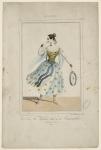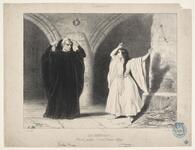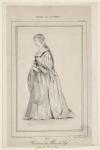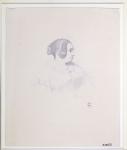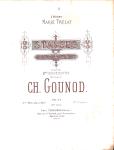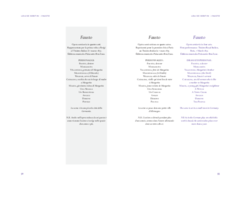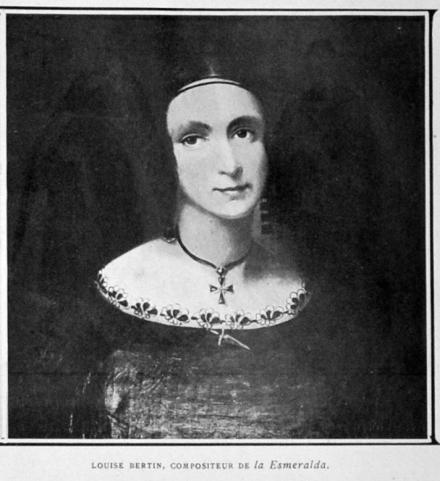
Louise BERTIN
1805 - 1877
Composer
As an exception that proves the rule, Louise Bertin’s career as a composer mainly took place at the opera. At a time when musical romanticism was blossoming, she passed through the Parisian sky like a shooting star. As the daughter of the Journal des Débats’ influential director, she grew up in a privileged environment where many artists met. Crippled by poliomyelitis, the young girl found an escape in the arts. Fabre’s 1802 portrait of her mother shows her playing the piano and suggests that Louise Bertin received her first lessons in the family setting. François-Joseph Fétis claims to have supervised her studies, first to develop her contralto voice, then to accompany her on the road to composing. Other sources mention lessons taken earlier with Reicha. Four works were born of this creative impulse: Guy Mannering, after Walter Scott (privately premiered in 1825), Le Loup-garou, on a libretto by Scribe (Opéra-Comique, 1827), Fausto, after Goethe (Théâtre-Italien, 1831), and La Esmeralda, an adaptation by Victor Hugo himself of Notre-Dame de Paris (Académie Royale de Musique, 1836). The violent reactions against this grand opéra led her to abandon her operatic career and devote herself to poetry (with Les Glanes in 1842 and Nouvelles Glanes in 1876) and chamber music. Only Six Ballades for piano (1842), the fantasy Reviens! and a piano trio bear witness to this activity; the rest of her works are considered lost.
Focus
Focus
Compositrices
Scientific publications
Articles
‘The undertaking was a bold one’
Articles

